Most of us love the taste of meat or dairy. I mean come on…. who doesn’t love cheese on their pizza or fried eggs on toast for breakfast? Or a bowl of creamy ice cream? Eating these foods is part of our lifestyle and culture. It is so ‘normal’ that to not consume them feels unusual and unnatural. It is commonly stated how healthy and nutritious these foods are for us by many corporations, government bodies, and many respected people around the world. But are these foods meant for humans to consume? Are they truly healthy for us?
In this article, I will attempt to explore the moral, ethical, and health implications when it comes to consuming animal products. A controversy as to whether animal products are good for us does exist, and researching further I have discovered many reasons as to why we should not eat animal products, and why one can benefit from a whole food plant-based diet that is not only good for your body but also your conscience.
There are concerns with morals and ethics:
The dairy and meat industry is well documented to undertake cruelty and torture of animals. It has become more and more evident in the internet age, with video footage showing the public what goes on behind the scenes. Workers are psychologically traumatized and there are cases of many farmers turning vegan and supporting animal welfare after experiencing animal suffering with their very own eyes. So, is it ethical to kill animals for meat? Do they deserve to be treated as objects for profit when it is known they are living beings that feel pain and emotion, just like we do?
There are concerns related to health with eating animal products over time:
Animal products are known to be problematic when it comes to bacteria causing food-related illness. Some of the most common being Salmonella, E Coli, and BSE (mad cow disease). We are told that to overcome this issue, meat should be cooked properly. But there are also issues related to cooking meat at high temperatures, as carcinogens such as HCA’s and PAH’s are formed.
Why do rotted meat and meat products smell so bad? It’s because of the chemical compounds called putrescine (PUT) and cadaverine (CAD) which are created by the decomposition and decaying of tissue. Ingesting them has also been said to be one of the toxic components of eating meat.
Parasites and putrefaction of meat in the intestines cause toxicity and excessive consumption of proteins by consuming animal products that become stored in the arteries and capillaries leading to heart disease. 34 It has been stated by doctors and studies worldwide, and specifically by Dr. Colin T Campbellof The China Study, that eating a plant-based whole food diet can prevent and reverse the effects of chronic illnesses.
So, can we trust that animal products in all forms are safe to consume?
Seeking answers to these questions, I have found that my research further confirmed my decision to eat a plant-based diet was a good one. I chose to be vegetarian/vegan after years of eating meat many years ago. Our family at Spiritbeing.life do the same.
The aim of this article is not to judge or condemn meat-eaters, or to create segregation, but rather to create awareness: the quest for truth, to look at all sides and make better decisions by informed consent. I like to keep an open mind and question everything, even if it is a way of life by billions of people around the world. After all, as I was growing up, I too used to eat animal products daily.
Ethical reasons – animals are sentient beings
Animals have personalities and are emotional, just like humans. Many animals are loving creatures and care for their young and their family, including ‘livestock’ animals. These days I cannot easily look at videos related to animal torture, cruelty, and suffering without feeling both horrified and emotionally upset. I bless these animals and wish them all well on their next journey, wherever their soul goes to next.
It is so easy to feel this empathy for animals even more clearly when you own a pet you love. They can’t speak a language but it’s easy to sense when they are sad, upset, bored, joyous, or happy. They are just like young children, the only difference being that they do not grow up.
It is easy to see why many pet owners become attached to their pet emotionally, just as much as you would any other family member. They give you unconditional love, they do not judge you and they make you feel special. Who you are, your status, how much money you have, what you own… these things just don’t matter. In their eyes, you are important to them just because you are being you.
But some people have a deep sense of empathy for animals. Their personalities, individuality, their soul, their emotions, their connection to their young and other family members, their loving nature. They understand that animals can feel pain and suffering just as much as humans do. They see the connection between themselves and the world around them as being united. They see every living thing as important and deserving to live happy and free. They see these soul aspects to an animal first.
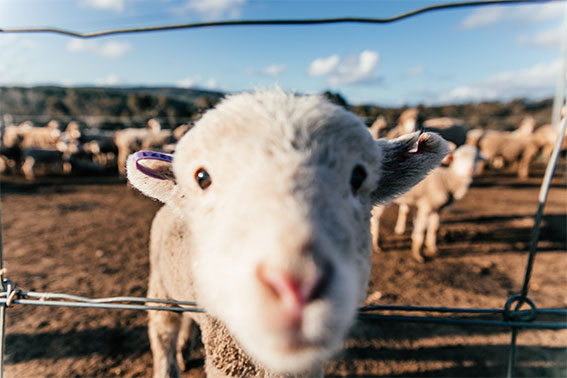
Photo by Rachel Claire from Pexels
Animal cruelty: the horrors of the meat, dairy, poultry, and fishing industries
The meat industry is horrendous in its practices, in many countries worldwide. There are animal abuse issues that are so extreme, I can’t even bear watching hidden footage of this abhorrent cruelty from slaughterhouses around the world. They get kicked, punched, chained, and slammed into walls…and these are just some of the cruel things they do for the speed of production.1 Just do your search on google and you will see what I mean. Be warned though, it’s not for the faint-hearted.
This is not to mention that, when the animals are loaded onto trucks ready for the slaughterhouse, they know they are going to die. They are crammed into trucks and carried long distances whilst being banned by food and water. They are also forced to fast for 24 hours before being sent to slaughter. 2
Many animals watch and wait for their death as they see their peers die terribly. Many are electrocuted to knock them out before they are slaughtered. Cows have their skulls drilled with a gun that introduces a retractable bullet into their brains. Some are hung upside-down and suffer rips and tears to their limbs. As their bodies tremble, they are then slaughtered and decapitated. 3 Many chickens and hens are automatically slaughtered by machinery as they hang upside down.
The employees also suffer severe emotional trauma and PTSD by working at the slaughterhouses. They don’t see that they have a choice to work there as they need money to feed their families. The animal cruelty they are exposed to is like a hellish and living nightmare where many become sensitized just to cope. Many employees can’t take the trauma and don’t stay in their jobs for too long. 4
Slaughterhouses are kept hush away from built-up areas and there are generally no regulations in place to ensure the welfare of the animals and workers. The best solution is out of sight and out of mind. What people can’t see won’t hurt them. When corporations hide cruelty from the public, It’s easy to forget that that piece of meat one buys at the supermarket once belonged to a living being. The being who had a family, who felt emotions (just like we do). They probably had to live through a terrifying and traumatic experience as they were born and bred for their meat.
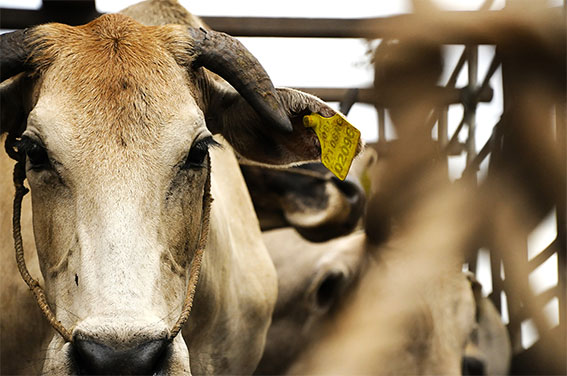
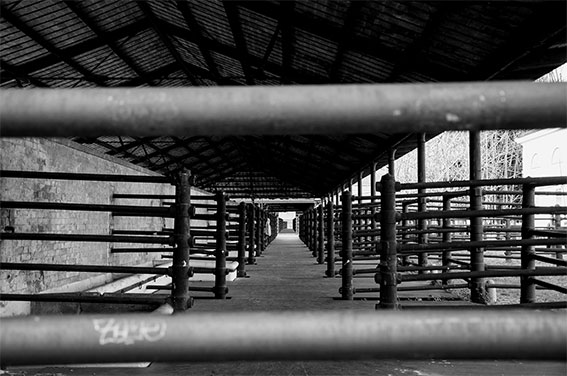
What about dairy?
There could not be animal cruelty involved with this industry…surely? Unfortunately, the dairy industry is cruel by exploiting cows to constantly produce milk. This includes small farms and ones which are labeled ‘humane certified. Due to extensive biological manipulation, dairy cows produce 12 times more milk than they would naturally produce to feed their young. They are forcefully impregnated year after year, to ensure their milk flow continues.
The cruelest part of all is when their newborn calves are separated from their mothers. Jay Wilde, a former UK beef and dairy farmer, turned vegan after witnessing such cruelty. He states “We stopped producing dairy because it was so arduous. To take the cow’s milk, you have to separate her from her baby. This is emotionally very difficult… the cows get very upset when they are separated. It takes them a long time to get over.” 5
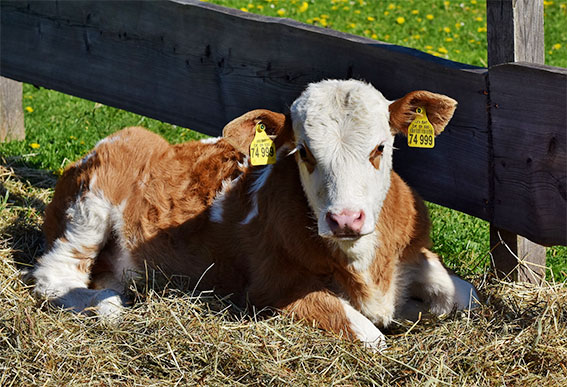
Also, the veal industry can’t exist without the dairy industry as the calves are slaughtered for food. Cows usually live for 20-25 years. After 4-5 years of age, when they produce less milk, and when their bodies are worn out, the cows are then slaughtered for meat. 90% are in perpetual constant confinement, not being allowed to roam the outdoors, but instead are tethered from the neck in stalls in perpetual lactation. 6
Chickens and chicks are horrendously treated also
We may believe ‘free range’ means chickens are free to roam outdoors, however, this is not the case at all. They may not be caged, but they are still confined indoors, sometimes in very crowded conditions. Practices like ‘debeaking’ where part of their beaks are cut off to avoid the birds injuring each other, also to avoid excessive pecking which happens due to the cramped conditions. 7
The standard practice of the industry includes depopulation, killing chickens after 18 months of age as she becomes ‘spent’ (when her egg-laying ability drops) because of the stressful living conditions. Usually, a hen can lay eggs for 15-20 years. Sometimes they are force molted, which means they are kept in complete darkness without food or water to shock their systems into another egg-laying cycle. Chickens go through mechanical means of slaughtering including electricals baths. This does not always work, and some remain alive until they reach the very end procedure of plucking in the scalding tank. 8, 9 The egg business has no use for male chicks as they do not produce eggs and do not have the right body structure to be grown for meat. Within hours of hatching, they are disposed of by electrocution, gassing, or grinding them up alive. 13
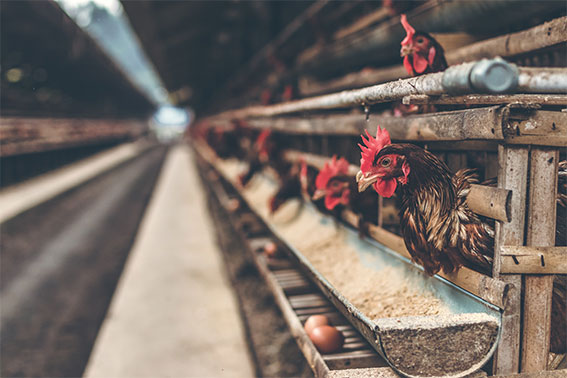
The fishing industry has its issues too…
Over half of the plastic pollution in the ocean comes from this industry, as many fishing nets are either lost or discarded. Many other marine species, including 308,000 cetaceans (whales, the dolphins, and the porpoises) are caught unintentionally within nets and then discarded as by-kill. 10, 11 Three-quarters of the world’s fisheries are either exploited or depleted as the industry catches 1 and 2.8 trillion fish every year. 12
What I have written here is not an extensive list of what is stated by many to be wrong about these industries, but it is too easy to do your research on the web for more information.
I also recommend watching the 2008 documentary ‘Food Inc.’ by Robert Kenner, for further information regarding the food industry, to learn more about where our food really comes from.
The animal cruelty behind the meat, dairy, and poultry industry are purposely hidden from view – what people don’t see can’t affect them. Most people (who are not desensitized) will be affected by scenes of animal cruelty and torture because the natural human is empathic, loving, and caring. The creator is only love and bliss and we are connected to this energy. It is intrinsic in all of us.
The truth is hidden by advertising
People have been carnivorous for eons and still to this day, slaughtering animals for meat is standard. Eating meat is second nature for some, almost everyone eats it and enjoys the taste. I used to be in the same boat, so I understand. Because of this demand, animals are born and bred as livestock. The corporate world sees animals as objects for profit for the meat industry.
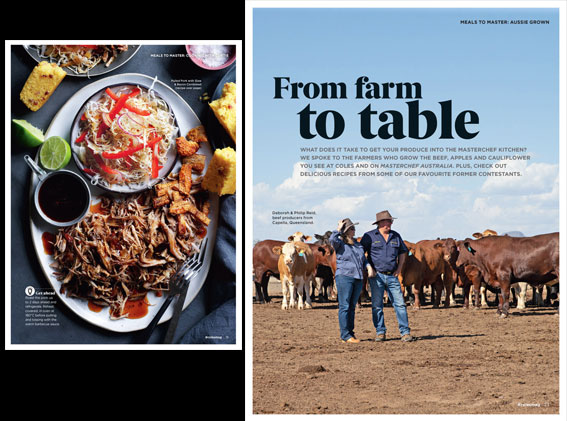
But is this cultural norm actually ‘normal’. Do we need to breed animals for meat to only perpetuate the cruelty of the meat industry? Buying meat from a butcher or grocery store is convenient and easy for all of us. The customer does not have to worry about raising the animal, slaughtering it, or cutting it up into smaller portions. No mess, no fuss. It is all neatly packaged and displayed, looking bright red and deceptively fresh.
Ads and recipes make it look delicious when cooked, grilled, and roasted. The perfect meal for the family. Advertising by its very nature always aims to make something look special – healthy and enticing. But advertising for the most part will lie by omission, appealing to the consumer and giving them what they want to hear, rather than the truth.

What lies beyond the ads and hype? Does all this convenience come at a cost to our health and a burden to our conscience?
Consumers do not get to see exactly where their food came from – how the animals were treated and what they were fed. What goes on behind the scenes?
Unfortunately, even with full disclosure, the problem is this: no meat or dairy industry could function efficiently without undertaking some form of animal cruelty. Not even labeling something “free-range,” “cage-free,” and “humane certified” means the animals were not subjected to cruelty. Animals raised on organic or free-range farms still suffer from the same painful mutilations as animals raised on conventional farms. 35 It’s all part and parcel. The dilemma lies with the very existence of these industries. How do you get ethics out of an industry that sees animals as objects in the first place?
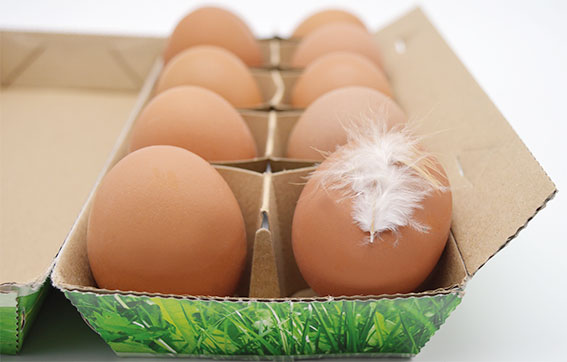
If consumers are not prepared to go vegan, then at the very least, regard the animals be treated as humanely as possible whilst they are alive, with the least amount of cruelty. It’s not the ultimate solution, but it is better than nothing. People should know where their food came from and exactly what chemicals or other additives have been used when raising the animal. The consumer should get full transparency. Questions such as some stated below should be answered:
- The living conditions of the animals – did they get to roam freely in the outdoors? Were they cared for as best as possible?
- The farming practices for the life cycle of the animal
- The chemicals, hormones, and feed were given to the animal whilst alive
Ethical dilemma – animals eating meat?
Should we be feeding our pets meat? After all, many animals in the wild are carnivores or omnivores in the wild. They hunt other animals for survival, and eating meat is a natural part of their diet. Apparently, this does not necessarily mean that they would not thrive and survive on a predominant or completely plant-based whole food diet.
There are many examples of dogs being fed vegan by their owners, and they survive and thrive well. Many of these pets are documented to live longer lives and live disease-free.
Here is a list of dogs who have thrived on a fully vegan diet. Perhaps dogs can thrive on a fully vegan diet after all.
Animals have different biological systems than humans and are more designed to eat meat. The stomach acid of carnivorous animals produces 20 times more hydrochloric acid than humans do. This massive amount allows the animal to break down meat proteins into essential components. Meat only stays in their intestines for a very short period, compared to humans’ intestines which are much longer (our small intestine is 5-6 meters) long. This also means it has less time to putrify. 36 Their dental structure is designed to tear and eat meat, in comparison to humans. Our dull and short canines do not have the same capacity, indicating that humans were never designed to eat meat.
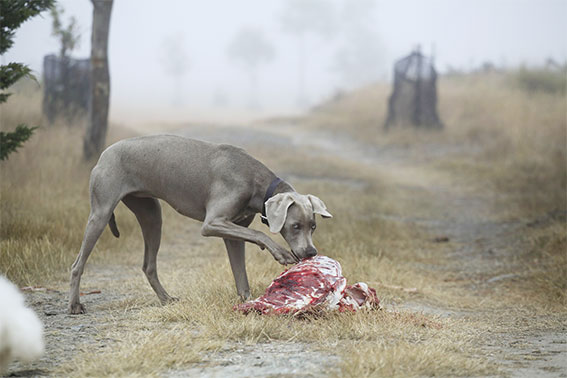
Image by Jacquie Lucas from Pixabay
At the time of writing this article, we feed our dogs mostly vegetables but do add a small amount of meat to their food. There was a time when we reduced the amount of fish/meat we were giving them and our largest dog was losing weight, so we decided to continue buying them animal products. After becoming more and more aware of the ethical, moral, and health implications when consuming animal products, we are now considering switching to a fully plant-based diet for our pets. We have always kept away from processed can dog foods from the shop and home cook all meals.
If you are reading and are feeding your pets a fully vegan diet, we would love to hear how your pets are thriving (or not) on this diet. Does it work for you and your pet/s?
Are animal-based foods healthy for us?
Research can be challenging when you have loads of information on the net that may be false. Information should always come from trusted sources without agendas or profit motivation. Not always easy to find, though. Who do you listen to? In the end, it all comes down to what feels like truth.
We read and hear so much contradictory information about what is good for us and what is not. Some people (including doctors) say meat is essential for health, other people say the body does not need the protein and fat that is found abundantly in meat and fish.
It may be true that there are essential nutrients and beneficial compounds that are found in animal products such as choline, L-Carnitine, vitamin B12, and essential fatty acids 36 but they are also found in plant foods and B12, stated to be the most essential, can easily be substituted.
I often question whether it’s worth consuming animal products for the minerals and nutrients found therein when you know that other elements are doing just as much harm?
Do we need to eat meat at all to live a healthy and disease-free life? After all, there are examples of many cultures around the world that thrive on a plant-based diet and they have the least incidences of diseases such as cancer and heart disease. They live a longer and healthier life in comparison to the cultures that consume meat. The good news is, veganism and vegetarianism are on the rise worldwide as people discover the benefits of a whole-food, plant-based diet. 14
Concerning diet, natural health, and nutrition, I believe the sources of information in this article are reliable and quite compelling.
Dr. Andreas Moritz wrote the books: The Amazing Gallbladder and Liver Cleanse and Timeless Secrets of Health and Rejuvenation. In his books, he showed compelling evidence and research as to why many people suffer from diseases. One of them is liver and gallbladder stones which most people have but do not know it. They are creating congestion within our organs and lymph system, therefore leading to diseases of many kinds. This is not recognized by the medical establishment and he explains this further in his book. He also gives an at-home solution to remove stones safely and effectively. If you want to read about our experiences on Spiritbeing.life with removing these stones go to our article here.
According to Dr. Andreas Moritz, meat is detrimental to our health for various reasons. The main reason being that protein from animal sources is extremely difficult for us to digest. Most of the protein remains undigested as we do not have enough hydrochloric acid to break it down into amino acids (unlike animals that eat meat). The meat ends up putrefying in our intestines creating the perfect environment for parasites. The toxins, antigens, and undigested proteins from animal sources, (including fish, meat, eggs, and dairy) causes the lymph system to become ‘clogged’. This is where disease sets in as the lymph system can no longer function efficiently to remove toxins and waste products. 15, 16
He also states that another issue with meat consumption is the parasites found in all meat products which cannot be killed by cooking, neither can they be killed by the hydrochloric acid in our stomachs. Research has shown that all meat-eaters have worms and parasites in their intestines. 17
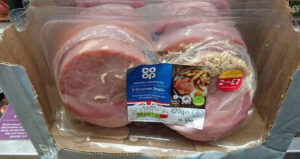
Vegans’ Reactions May Surprise You’ found here
Other reasons include:
- All animal protein, eggs, and most dairy cause gallstone and liver stone formations
- Excessive protein consumption raises cholesterol levels in the body
Animal protein is highly acidic. Uric acid (a waste product of the breakdown of cell nuclei) rises sharply with over-consumption of protein foods and leads to stone formations in the liver and gallbladder as well as gout and arthritis. 18It’s easy to intake too much protein through animal-based foods. These foods have 5 to 10 times more protein in comparison to plant-based protein. The body can’t utilize that amount of protein and so the excess becomes ‘stored’ in our blood capillaries and arteries. When they become clogged, they can no longer do their job of delivering blood and oxygen to the organs and arteries. Inflammation is the result, therefore forming blood clots – the number one cause of strokes and heart attacks. 19
Including his personal experiences of travel around the world, he states that populations that eat meat have the shortest life spans and a higher rate of degenerative diseases.
Dr. Colin T Campbell of The China Study spent decades researching the correlation between diet and disease. His conclusions came from 4 decades of biomedical research, which include the findings of a 27-year laboratory study. Through respected scientific animal studies, and most significantly ‘The China Study’ was a survey study that observed diet and lifestyle factors concerning chronic illness, of people in rural China and Taiwan. The study found 8,000 statistically significant associations between diet and disease.
It concluded that:
- People who ate the most animal-based foods got the most chronic illness
- Even small amounts of animal-based foods were associated with adverse effects
- People who ate the most plant-based foods were the healthiest and avoided chronic disease
Apart from the significant animal and human studies that were carried out, his further research found that eating a plant-based whole foods diet can reverse the effects of chronic illnesses such as cancers, autoimmune diseases, bone health, kidney health, vision, and brain disorders in old age (like cognitive dysfunction and Alzheimer’s. He states that old age should be graceful and peaceful, not for people to be at the mercy of chronic illnesses.
He identifies that the reason people are so confused as to good diet and health is because of a flawed system of government, industry, science, and medicine. People are grossly misled by lies, misinformation, and agendas. 20
One study conducted by the George Washington University School of Medicine and Health Sciences concluded that eating a plant-based diet can reduce and reverse heart disease by a whopping 40%. The study also states that plant-based diets are associated with lower blood pressure, better weight management, and a lower risk of developing diabetes, as well as diabetes management. 21
It has been documented that vegetarians/vegans live longer and disease-free lives. There are proposed benefits to eating a plant-based diet including metabolism, cardiovascular, mental health, and cognitive benefits as well as a lower risk of cancer. 22
These are just a few examples of many sources on the net that tell us eating plant-based whole foods is the healthiest alternative.

Germs, deadly bacteria, and toxic chemicals
Animal products putrify very quickly. When handling meat, it is the first thing flies are attracted to. Rotting meat, eggs, and fish smell the most putrid when they break down. These are chemical compounds called putrescine (PUT) and cadaverine (CAD) and are created by the decomposition and decaying of tissue. They are the death smell components of a dead animal. But apparently, they are not just found in dead tissue, they are also found in eggs, dairy products, fermented foods, and beer and wine. The highest levels are found in animal-based products.
“Putrescine and cadaverine are among the most common biogenic amines (BA) in foods, but it is advisable that their accumulation be avoided. The ingestion of food with high concentrations of BA can provoke serious toxicological reactions.” 23
Dr. Moritz explains that when animal flesh dies it immediately begins to decompose. The purification and bacterial growth happen to the meat protein soon after the animal dies. The proteins thicken and harden (coagulate) and destructive enzymes immediately begin to break down the cells. This in turn forms ptomaine, which is a known cause of many diseases. He states: ‘The kinds of poisons resulting from the putrefaction (decomposition) of meat are some of the most powerful found in the natural world.’ 24
Does this tell us something about the type of food we are eating?
We have all heard of the deadly bacteria found in meat and dairy products. Here is a list of just a few:
E. coli from ground beef has also occurred in cheese and milk. It can be deadly if gained access to kidneys, bladder, or other internal organs becoming parasitic and producing infections that can turn fatal.
BSE (bovine spongiform encephalitis) from beef cattle is also known as ‘mad cow disease’ and can spread to humans through ingestion of contaminated cattle. The disease originates from cattle being fed meat and bone meal. Cows are natural herbivores.
Trichinosis is a parasitic infestation that can transfer through the consumption of eating pork, especially where raw pork products are concerned.
Salmonella is a foodborne bacteria with 1,300 types known. It’s commonly found in poultry, eggs and cracked eggs, shellfish, and raw milk. One of the most severe infections caused by salmonella is typhoid fever. People and animals can be carriers without showing any symptoms. 25
Many of these disease-causing bacteria are due to the feed which the animals are given. Evidence shows that animal-based feed is frequently contaminated with S. enterica (salmonella). The feed given to animals is contaminated with feces.
Humans become infected when they ingest contaminated meat or poultry products, raw produce contaminated with animal feces (e.g., from contaminated streams used for irrigation), or other foods, particularly uncooked foods, that have been cross-contaminated by contact with uncooked meat or poultry products. 26
There are also foodborne bacteria found in plant foods, the cause usually due to the contamination of the water supply with plant feeding. Plant food can become contaminated when the water is contaminated by animal feces, manure, and feces from birds and pests. Foods can also become contaminated at the processing plant due to equipment, pests, sick food handlers, and other contaminated foods. 27
It’s plain to see that the best and safest way to buy organic produce where possible or better yet, grow your own! Another solution is to ozonate your plant food before consumption to kill any microbes.
With the risk of many bacteria found in raw meat, people are advised to cook their meat at high temperatures. While this may kill some bacteria, it also creates another problem. Toxic chemicals are formed when cooking at high temperatures. These chemicals are called heterocyclic amines (HCAs) and polycyclic aromatic hydrocarbons (PAHs) and are formed when muscle meat, including beef, pork, fish, or poultry, is cooked using high-temperature methods, such as pan-frying or grilling directly over an open flame.
“HCAs are formed when amino acids (the building blocks of proteins), sugars, and creatine or creatinine (substances found in muscle) react at high temperatures. PAHs are formed when fat and juices from meat grilled directly over a heated surface or open fire drip onto the surface or fire, causing flames and smoke. The smoke contains PAHs that then adhere to the surface of the meat. PAHs can also be formed during other food preparation processes, such as smoking of meats.” 28
Even smoking meat is an issue and the further the meat is cooked, the more the chemicals are formed. Tests performed using animal studies found HCA’s cause cancers of different forms breast, colon, liver, skin, lung, prostate, and other organs. Rodents that were exposed to PAH’s developed cancers, including leukemia and tumors of the gastrointestinal tract and lungs.
What do factory farmers feed the animals and what are they injecting them with?
- Same Species Meat
- Diseased Animals
- Feathers, Hair, Skin, Hooves, and Blood
- Manure and Other Animal Waste
- Plastics
- Drugs and Chemicals
- Unhealthy Amounts of Grains
These are some of the things they are feeding animals in factory farms, and they are legal! Whatever goes into the animals, will also end up in the body of the human who consumes this meat. There are no laws in place to protect the consumer. 29
Antibiotics are used to artificially speed up growth and to compensate for crowded, stressful, and unsanitary living conditions. Excessive antibiotics are a concern because they cause the spread of antibiotic-resistant strains of bacteria. These strains can spread to people who come into contact with the animals or eat their meat. 30
Chemicals that are supposed to control parasites in poultry contain arsenic. Hormone injections such as estrogen, progesterone, and testosterone are used to fatten up cows quickly. The non-steroidal hormone bovine somatotropin is used in dairy cows to increase their milk production. 31
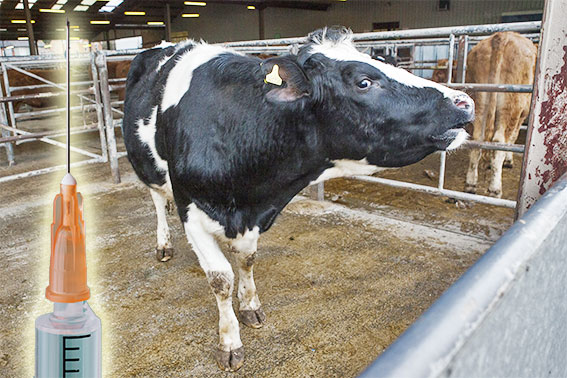
Eating too many grains, like corn, wheat, and barley causes health problems and acidic conditions which in many cases can lead to severe illness and even death. It’s not a natural diet for cows as they were designed to eat grass. 32
But the problems associated with the existence of these industries remain, even when it comes to smaller farms and farming, even when we think we are doing the ‘right thing’ by buying ‘free-range’, ‘organic’ or ‘grass-fed’.
Going organic and eating grass-fed or organic beef may be the safer option for health as there may be fewer toxic chemicals, (including hormones or antibiotics) the issue lies with causing more of a negative impact on the environment at the same time. Grass-fed beef is not environmentally sustainable, as they require more land pasture to graze, more food and water, and create just as much waste as factory-farmed beef. Rainforests, such as the Amazon, are being deforested to create grazing pastures for free-range, grass-fed organic beef. To create farming pastures to accommodate every grazing cow in the US, you would need approx. over 390,000 square miles, which is more than 10% of all the land in the U.S. Grass-fed beef also creates 50% more greenhouse gasses than feedlot beef. 33, 34
Although it may be kinder to purchase free-range eggs rather than buying eggs laid on factory farms, this does not mean it’s a humane or cruel-free solution. Usually, they still do not get to spend much time outside, and their environment is like that of caged hens who spend much of their time in confined or crowded sheds. They are still debeaked and sent to slaughter when their egg production decreases. It does not mean the chickens are free from hormones and antibiotics either, nor that they are organic or GMO free. 38 Pasture-raised eggs may be a better option, although it may not guarantee they are organic or GMO free either. 39
The agricultural animal food industry creates a huge impact on the environment, creatingmore greenhouse gases than all the world’s transportation systems combined!
- The need for more water. Apparently, one person can save approximately 219,000 gallons of water usage a year by turning vegan.
- Pollution via animal manure and waste can contaminate our waterways and air with deadly bacteria.
- Wide-scale land clearing and deforestation, to accommodate farming to breed animals for food and grow crops to feed them. 40
It has been said that you can reduce your carbon footprint from food by up to 73% if you eat vegan! 41, 42.
The industry primarily exists to make money, cut costs where possible, and meet consumer demand with speed and efficiency. They cannot afford to stop and care about anything except the bottom line. The problem remains: animals are still exploited and exposed to cruelties, even in smaller farms.
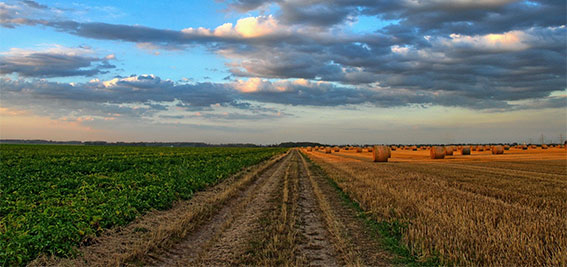
Conclusion
Through various avenues of research, as well as my own experience with increased health and vitality, the benefits of eating a plant-based whole food vegan diet greatly surpass that of a diet that includes animal products. As I have learned, there are risks associated with eating meat and animal-based foods. The main being the excess protein which the body stores in the capillaries and arteries which leads to heart disease, then there is the issue of putrefaction of undigested meat in the intestines and the related toxicity issues, as well as the deadly bacteria naturally present animal products and the toxic chemicals that are produced when cooking at high temperatures. This is not to mention the issue of ethics when it comes to animal torture and cruelty and the horrors that we do not get to see, hidden (or not so hidden) these days behind the meat, poultry, milk, and fishing industries.
It is no secret. Many doctors around the world, espouse the benefits of eating plant-based foods for health and longevity. There is a broad range of compelling evidence that switching to a vegetarian/vegan diet will provide a healthier and disease-free life. Many cultures around the world eat plant-based diets and thrive.
With everything we know about animal-based foods, is it the wisest choice to add them to our dinner plates? We are so used to eating these types of foods that they are considered to be a normal part of our culture and upbringing. Going against the ‘norm’ and switching to a plant-based diet can challenge our habits and beliefs. Ultimately, only you can decide whether it is right for you.
References:
1,2,4. https://sentientmedia.org/slaughterhouses/
3. https://animalequality.org/news/5-common-practices-in-slaughterhouses-that-you-need-to-know/
5. https://freefromharm.org/animal-farmer-turned-vegan/jay-wilde/
6. https://freefromharm.org/dairyfacts/
7. http://www.veganpeace.com/animal_cruelty/eggs.htm
8, 9. http://www.veganpeace.com/animal_cruelty/eggs.htm
https://www.newsweek.com/animal-liberation-chicken-cruelty-bridgewater-poultry-farm-1444331
10. 640,000 Metric Tons of Ghost Gear Enters Oceans Each Year – EcoWatch
12. How Many Animals Do We Kill Every Year? – Bite Size Vegan
14. The Age of Veganism: Vegan Statistics for 2020 (Infographic) (healthcareers.co)
15, 16, 18. Andreas Moritz, The Amazing Gallbladder and Liver Cleanse, Ener-chi Wellness Press, 2002, Pg 36, 55.
17, 19, 24, 34, 36.Andreas Moritz, Timeless Secrets to Health and Rejuvenation, Ener-chi Wellness Press, 2007, Pg 167, 169, 170
21. https://www.sciencedirect.com/science/article/abs/pii/S0033062018300872
22. https://www.news-medical.net/health/What-are-the-Health-Benefits-of-a-Vegan-Diet.aspx#3
23. https://www.nature.com/articles/s41598-018-36239-w.
25. https://opentextbc.ca/meatcutting/chapter/diseases-associated-with-meat/
26. https://academic.oup.com/cid/article/35/7/859/307143#4042604
27. https://www.foodsafety.ca/blog/can-vegans-get-food-poisoning
28.https://www.cancer.gov/about-cancer/causes-prevention/risk/diet/cooked-meats-fact-sheet
29. https://www.organicconsumers.org/news/they-eat-what-what-are-they-feeding-animals-factory-farms
30. https://www.thoughtco.com/factory-farmed-animals-antibiotics-and-hormones-127697
31. https://www.businessinsider.com/farmers-fatten-cattle-hormone-implants-2016-4?op=1&r=AU&IR=T
32. https://www.agric.wa.gov.au/feeding-nutrition/grain-overload-acidosis-or-grain-poisoning-stock
33. https://www.treehugger.com/whats-wrong-with-grass-fed-beef-127696
34. https://www.treehugger.com/environment-free-range-organic-local-meat-127667
35. https://www.peta.org/living/food/free-range-eggs/
36. https://examine.com/nutrition/what-beneficial-compounds-are-primarily-found-in-animal-products/
37. https://veganrising.org.au/chickens-eggs/
38. https://www.peta.org/issues/animals-used-for-food/free-range-organic-meat-myths/
39. https://www.motherearthnews.com/real-food/free-range-eggs-zmaz07onzgoe#ixzz314mNVOnE
40. https://www.peta.org/issues/animals-used-for-food/meat-environment/
41. https://www.independent.co.uk/life-style/health-and-families/veganism-environmental-impact-planet-reduced-plant-based-diet-humans-study-a8378631.html 42. https://science.sciencemag.org/content/360/6392/987
If you found this article useful, please share or leave a comment.

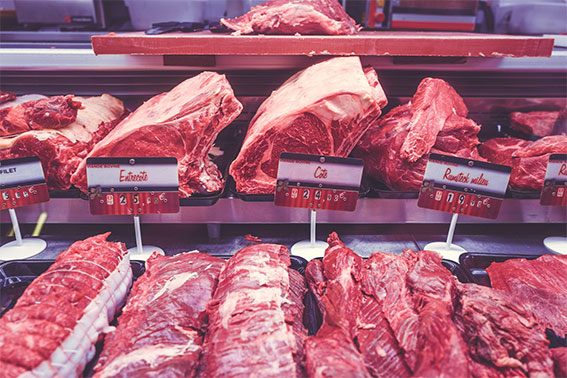
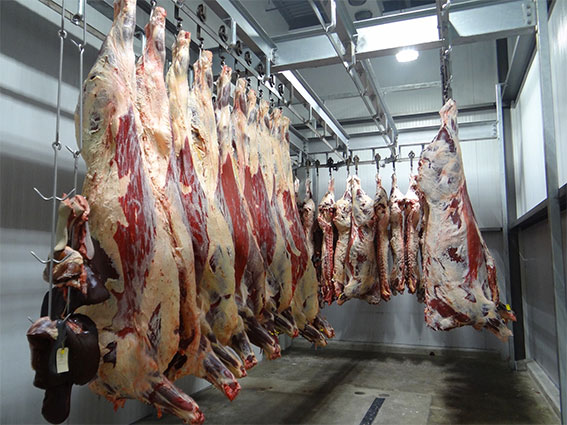
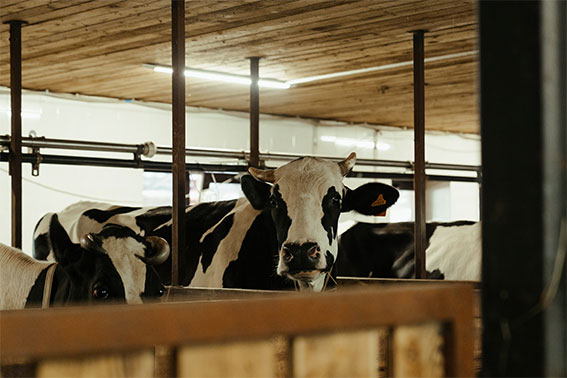
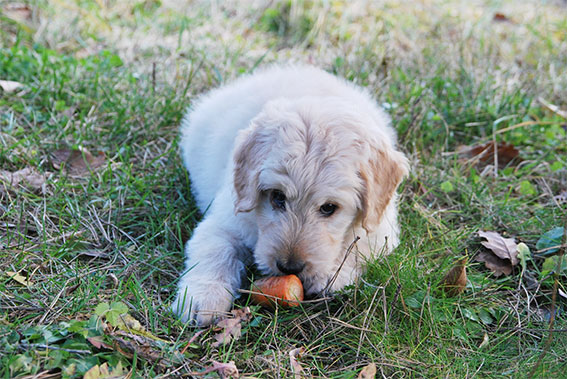

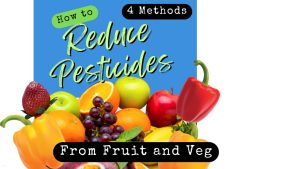
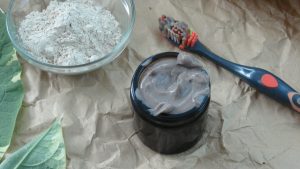
Hi there everyone, it’s my first go to see at this web
site, and article is genuinely fruitful designed for me, keep up posting these
types of articles or reviews.
Hi thanks for visiting our site and finding this article useful. Regards Helen